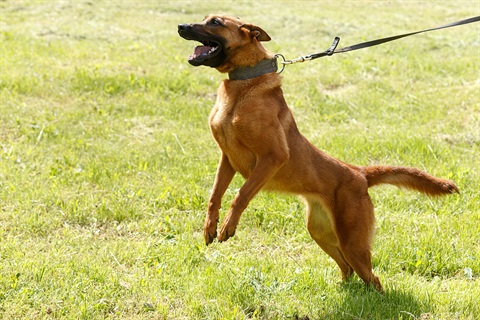Dog attacks

If you believe a dog attack has taken place contact us immediately on 8416 6333 (after hours service available).
Please seek medial or veterinary treatment as required.
What to do if a dog attacks
We will investigate the incident as soon as practicable. To assist the investigating officer, please keep your own notes detailing:
- the date, time and exact location of the attack
- a description of the offending dog - identification or registration disc/breed/colour/sex/markings/collar
- a description of the owner - identification/ name/ address/ contact phone number/male or female/age/hair colour
- if a car was involved and the offender drove away with the dog - car registration number/make/model/colour
- a description and photographs of any injuries and location on your body or your pet's body.
You should also keep copies of any medical certificates/vet or doctor bills as evidence.
When a dog is reported:
- We take a statement or affidavit from you.
- Photos may be taken of any injuries to yourself, or your animals or birds.
- The dog's owner will be contacted to get their side of the incident.
- Seek witness statements and other evidence.
- Assess the circumstances and evidence.
- Make a decision for action.
- Issue legal notices as required.
- Inform the parties of the outcome.
Depending on the severity of the attack, we can:
- issue a warning
- impose an on the spot fine of $315
- take direct court action in more serious cases
- impose a control order (Nuisance Order, Dangerous Dog Order, Menacing Dog Order, or Destruction Order) .
The maximum penalty for a dog attack is $2,500.
If you have any questions contact us on 8416 6333.
You are responsible for your dog’s actions
The dog's owner or the person who has care and control of the dog is responsible for its actions and behaviour.
It is an offence for a dog to attack, harass or chase:
- a person
- another animal
- a bird owned by a person.
Find out more from the Dog and Cat Management Act, 1995
Preventing dog bites
Dogs bite for many reasons. The most common reasons are fear, pain or confusion when mixing with people and other dogs. Ignoring signs of aggression can result in serious injury to you, a member of your family or others. You can discourage biting by:
- avoiding situations that may cause your dog to become nervous or anxious
- training your dog - obedience classes help you learn about your dog, its body language and how you can communicate with it
- socialising your dog from an early age so that it learns how to mix with other dogs and other people in public
- asking your vet for advice if your dog shows any signs of aggression towards people.